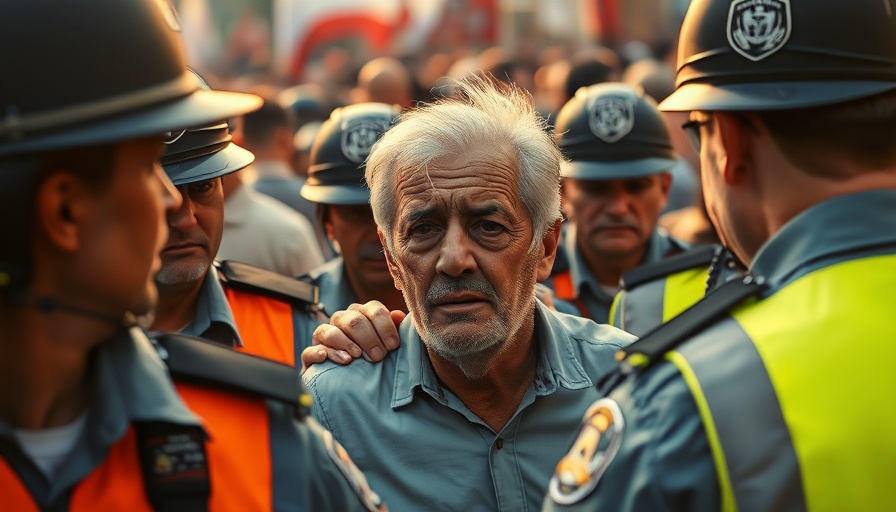
Critical Incidents: Understanding the Importance of Rapid Response
Every law enforcement officer (LEO) knows that critical incidents can strike at any moment, demanding immediate and effective leadership. As outlined in the recent experience highlighted by a law enforcement labor leader, when things go awry—like a fight leading to a possible homicide—the urgency of the situation skyrockets. This incident serves as a vivid reminder of the stressors inherent to policing and underlines why having a crisis management plan in place is not just essential but vital.
Crisis Management and Officer Wellness: The Dual Challenge
While law enforcement agencies are expected to uphold public safety, they must also prioritize the wellness of their officers—who often bear the brunt of traumatic experiences. Stress and exposure to violence can lead to detrimental effects on mental health, and as per several studies, inadequate support structures can lead officers to experience burnout or heightened anxiety.
Therefore, building a framework around officer wellness initiatives is crucial. This includes ensuring that officers understand their rights regarding legal representation and mental health support when involved in critical incidents. For instance, providing immediate counseling services after an incident can significantly ameliorate the emotional toll first responders face. Police departments should not only strive for the physical safety of their members but also for their mental well-being.
Building Trust with Community: The Key to Effective Policing
In the broader context, the relationship between law enforcement and the communities they serve is more important than ever. Trust in policing methods fosters cooperation, which is essential for successful law enforcement outcomes. Engaging with citizens candidly about policies and procedures can positively impact community perceptions and reduce tensions, particularly during critical incidents.
When responding to incidents, the perception that officers are supported and legally protected can also boost community trust. Transparency, especially in how officers handle situations and the aftermath, helps demystify the policing process and can aid in crime prevention strategies.
Establishing Robust Protocols for Incident Management
The police force’s approach to incident management should reflect best practices to ensure the well-being of officers and the public. It's important for agencies to:
- Maintain a clear callout process that LEOs can understand and follow.
- Ensure that support protocols are in place for immediate post-incident management.
- Ensure that involved officers can access private spaces to speak with legal representatives.
- Provide food, hydration, and check-ins to monitor officer well-being during critical incidents.
By instituting a strategic framework for officer training and crisis response, police departments can better prepare their individuals for the complexities of modern law enforcement. Leadership training can further emphasize these points, preparing officers not just for the physical aspects of a job but the emotional intelligence required to navigate high-stress situations.
The Role of Technology in Modern Policing Responses
With advancements in law enforcement tech like body cameras and real-time data analytics, agencies can significantly enhance their incident response protocols. These tools provide officers with improved situational awareness and help in documenting interactions for future transparency efforts.
Moreover, leveraging technology can assist in community outreach efforts by enhancing public engagement and building trust metrics. Programs that educate community members about policing tactics and the rationale behind them contribute to more collaborative efforts in crime prevention.
Ultimately, understanding the multifaceted demands of law enforcement in light of critical incidents can create a more resilient police culture, one that values officers’ well-being equally as it does public safety. As we move forward, emphasizing officer support, community trust, and robust incident management protocols will ensure that both officers and the citizens they serve feel protected and empowered. In this landscape, where awareness translates to actionable changes, reform efforts in policing strategies must place a premium on officer wellness and community engagement.
 Add Row
Add Row  Add
Add 

 Add Element
Add Element  Add Row
Add Row 




Write A Comment